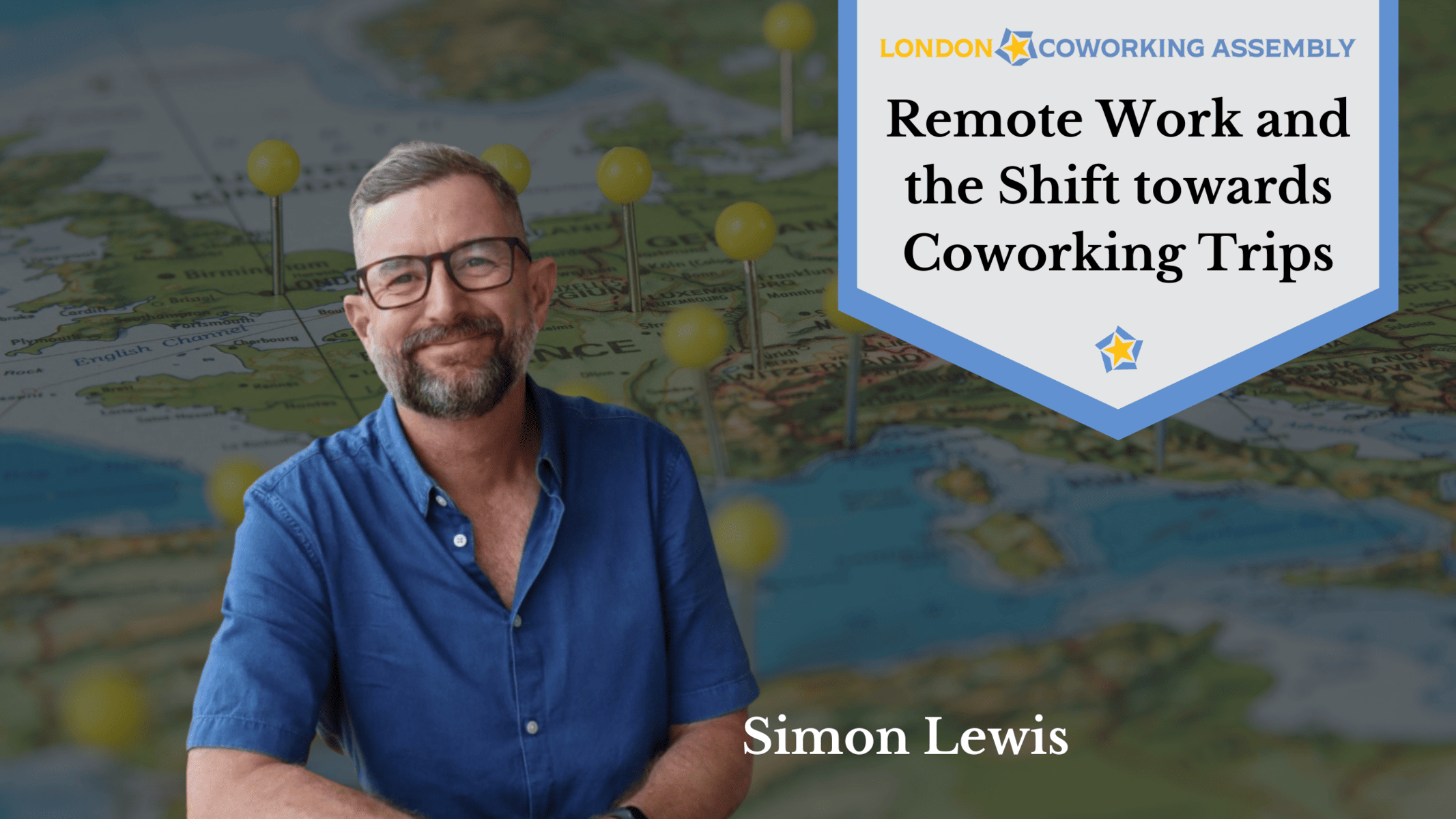Remote work has been a hot topic since the start of the pandemic. But one person saw the potential of it even before the pandemic became a part of our lives.
Enter Simon Lewis, marketing consultant and founder of Coworking Days and an advocate for remote work. He has multiple years of experience working in the travel sector and believes that remote work and traveling can be combined. What he feels even stronger about is working in different locations across the globe, like Spain and South Africa.
In 2017 Simon saw the gap in the market for coworking trips – to travel to different destinations to make use of coworking spaces and get to know the different communities. His idea, due to remote work being a far-fetched idea back then, received a number of question marks and backlash.
About five years ago, working from another country would not even cross our minds, but the pandemic has changed many things for the future of work.
Before the pandemic, only 17% of American workers worked from home, five days a week, according to a report published on Statista by Kimberly Mlitz. Since the pandemic, it has shifted to 44% of Americans who work from home, five days a week.
With the start of the pandemic and industries shifting to remote work, Simon’s idea has been adopted with open arms and embraced by many who see the benefit of learning about new communities.
Coworking trips
In 2017 Simon and Wesgro partnered to form a project called Swap London for Cape Town which saw 10 remote workers from London go to SA and cowork in a pop-up coliving space. This was created to experience the city and remote working destinations.
The evolution of this campaign is Coworking Safaris, which enables people to make use of coworking spaces in Cape Town, while enjoying tourist destinations on a lifestyle holiday. When he came up with the idea, remote work had not been as familiar as it is now, and he received questions like why anyone would want to work on a holiday.
“They just weren’t ready for it yet,” Simon says,“ and I kept telling my business partner that the time will come when people understand remote work. Look at where we are now.”
Now that remote work is part of almost every person’s life, he has been able to offer better destinations within South Africa that offer decent WiFi. The project did research on the best coworking spaces as well as the best coliving spaces to ensure that the travelers are comfortable.
Simon does warn that the trip has been created with digital nomads in mind. This means those who only need to stay connected and don’t have to do deep work and answer a lot of phone calls.
“The trip is perfect for singles, people traveling independently, company retreats, or team retreats,” says Simon.
What to expect from this trip
Here is what can be expected when joining this remote working trip. The group starts out in Cape Town and from there goes to Prince Albert where they spend four days in a 4 Star lodge. This lodge is on a 5000 hector private reserve and it offers a remote and luxurious experience.
There is a large focus on a digital detox night in a tented camp to help the travellers disconnect and reconnect with nature but once the group reaches the four star remote lodge just outside of Prince Albert in the Karoo there will always be internet connection for those who want to work during the day.
The trip also includes safaris in the morning as well as in the evenings and guests are welcome to relax alongside the pool or simply work in the lounge or wherever feels comfortable.
There are multiple packages to choose from for the return trip: a seven day trip, a 10 day option, and a 14 day stay, where different destinations are explored as well as a number of activities planned plus you can even extend your stay and hang out at a coworking space in Cape Town.
The community
Coworking trips are not solely focused on attracting tourism to South Africa. These trips were especially created to show the coworking community in different areas and even countries.
When working from a remote location and making use of other coworking spaces, it shows the users many things about the culture of the people and the community. It gives people the opportunity to see how other cultures experience working and how different it can be to what they are used to.
These trips can help different sectors, and Simon points out how different communities have opened up his eyes to the type of content that he created – especially copy and photography. It gives people the opportunity to change the way that they perceive the world and create their content.
It offers an engaging experience to anyone who allows their mind to open when they visit new places. It is the perfect opportunity to try new things like food and beverages, it also adds to the worldly experience of an individual – offering them a better understanding of other cultures.
Remote work has created multiple opportunities for more industries than we might think. There are more doors that are being opened and new ways of work have been brought to light. Now, a trip down to South Africa – while still working – will be perfectly accepted by most industries. It is strange how things change, isn’t it?

